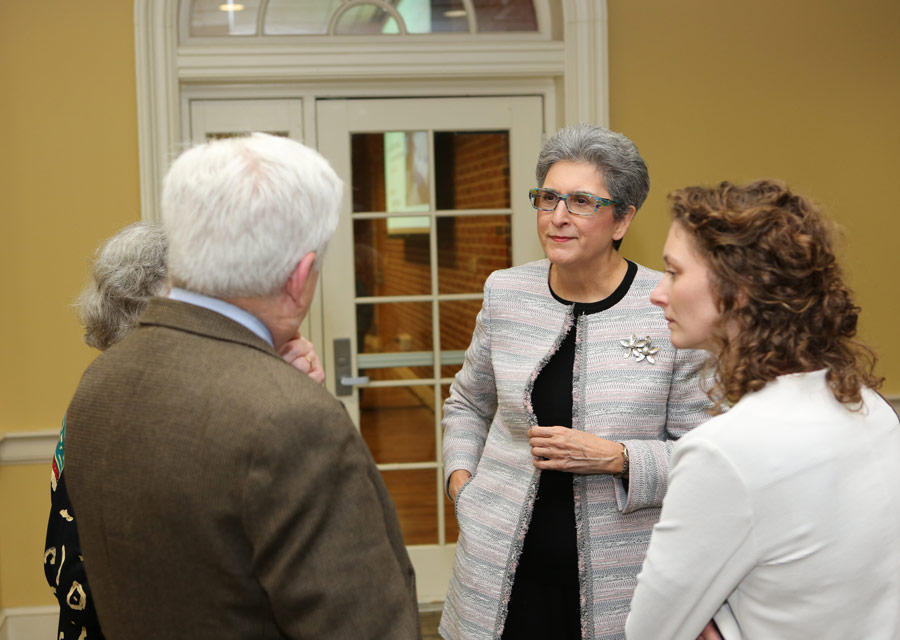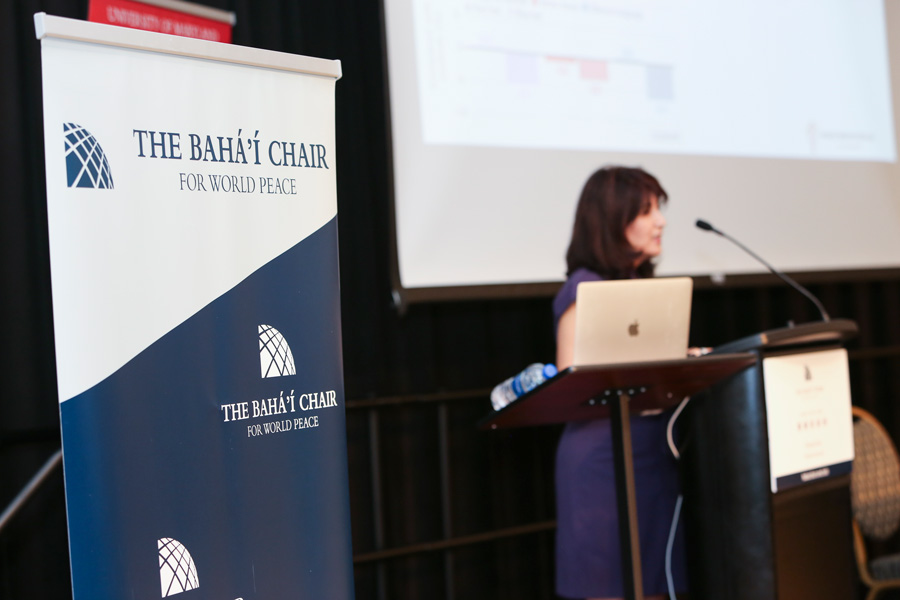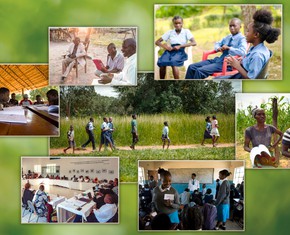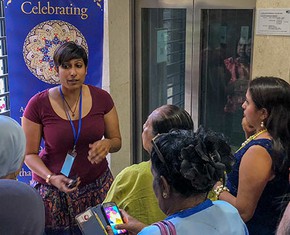The pursuit of global peace and security requires a transformation in the systems of global governance and the power dynamics that define them today:
According to an intrinsic law all phenomena of being attain to a summit and degree of consummation, after which a new order and condition is established. As the instruments and science of war have reached the degree of thoroughness and proficiency, it is hoped that the transformation of the human world is at hand and that in the coming centuries all the energies and inventions of man will be utilized in promoting the interests of peace and brotherhood. – Abdu’l-Baha, The Promulgation of Universal Peace, p. 123.
It demands the participation of all segments of humanity.
These conclusions were voiced across a wide range of presentations at the Baha’i Chair for World Peace conference about global peace and security—held on 16 and 17 October at the University of Maryland, College Park.
“The pursuit of peace must be sustained indefinitely because the barriers are big and complex,” said Hoda Mahmoudi, holder of the Baha’i Chair. “We have to bring new thinking into this process. We have to raise consciousness about this complex endeavor. We have to bring more like-minded people together to explore the ideas and essential strategies.

Hoda Mahmoudi (second from right) is the holder of the Baha’i Chair for World Peace at the University of Maryland, College Park. The Chair hosted a recent conference, bringing together scholars and practitioners from a range of fields to share emerging insights about attaining global peace and security.
“As the third decade of the tumultuous, rapidly-changing 21st century approaches,” Dr. Mahmoudi added, “promoting a deeper understanding of peace is imperative.”
Through talks and panel discussions, videos of which are available online, the conference focused on five themes considered by the Chair to be critical to understanding the challenge of global peace and security: leadership and governance, peace and technology, gender equality, human nature, and structural inequalities.
“To end violence from war we have to change the way we view and build peace,” stated Severine Autesserre, a political science professor at Columbia University. She focused on success stories of peace-building in countries that suffered from prolonged conflict, drawing particular attention to the characteristics of effective outside intervention, such as humility, flexibility, a learning attitude, and true respect for the local population.
“Ultimately, many successful examples of peace building in recent years have involved innovative grassroots initiatives led by local people and at times supported by foreigners,” Dr. Autesserre said.
Valentine Moghadam pointed to the work of womanstats.org, a research project that highlights the relationship between the status of women and the security and stability of a state. Improving the status of women, Dr. Moghadam argued, is essential to attaining a peaceful world.
“The degree of equality of women within countries is the best predictor of how peaceful or conflict-ridden those countries are,” stated Dr. Moghadam, a professor of sociology and international affairs at Northeastern University. “Increasing gender equality is expected to have cascading effects on security, stability, and resilience within a country as well as internationally.”
A number of talks also stressed the need for structural changes to the global system in the process of building a peaceful world civilization.
- Andy Knight, from the University of Alberta, described how decisions and institutions governing the global order have been “frozen in time” since the middle of the 20th century.
“Today, many of these institutions created after the Post-World War II period are proving to be defective, inefficient, ineffective, and largely irrelevant. Especially when it comes to maintaining peace and security, many of these organizations are top-down without very much input from the bottom-up,” noted Dr. Knight, a professor of political science. “So it’s time for new thinking about global governance, particularly in this era of turbulence and disorder.”
A related point was raised by Craig Murphy, a professor of political science at Wellesley College, who spoke on the need for greater equality and “deep cooperation” to address global problems.

The Baha’i Chair for World Peace held a conference about the challenge of global peace and security on 16 and 17 October at the University of Maryland, College Park. Margarita Quihuis, co-director of the Peace Innovation Lab at Stanford University, spoke about the importance of the values behind technology in one of the conference’s keynote addresses.
“Our global governance tools aren’t fit for purpose,” Dr. Murphy argued. “We face a set of global problems which cannot be solved without transnational cooperation, deep cooperation.” A major challenge, he proposed, is that the current system of global governance is rooted in a patriarchal foundation that runs back to the earliest civilizations, in which war and plunder are central. The system, therefore, has inherent limitations.
“If we really want to solve this problem, which all of us need to solve,” Dr. Murphy stated, “we need to have a politics of broad, complex solidarity across all of the lines of inequality. And this is something that is for all of us.”
Transformation was also a theme in the talk from Sheryl Lightfoot, an associate professor of both First Nations and Indigenous studies as well as political science at the University of British Columbia. Dr. Lightfoot highlighted how the United Nations Declaration on the Rights of Indigenous Peoples, adopted in 2007, was a significant global achievement that fundamentally challenges the global human rights system.
“Recognizing and accommodating for Indigenous rights is a pathway to peace and justice and better understanding in society. It’s not the states that are at issue. It’s not the societies that are at issue. It’s the old colonial doctrines and practices and discourses and the ways of doing business that have to be eradicated and redesigned,” explained Dr. Lightfoot.
Many attendees commented on the depth of the exploration of the highlighted themes, as well as their acute relevance to the state of the world today.
Dr. Mahmoudi expressed hope that conference attendees and those who watch its videos online gain insights about peace: “Knowledge is so important as a catalyst toward transforming the individual, society, and ultimately the world.”
The Baha’i Chair, established in 1993, studies and contributes to the global conversation around peace. Over the past year, the Chair hosted a series of lectures focused on structural racism and the root causes of prejudice. This series continues on 6 November with a panel discussion organized to explore solutions to systemic racism.
















Comments
Sign in or create an account
Continue with Googleor